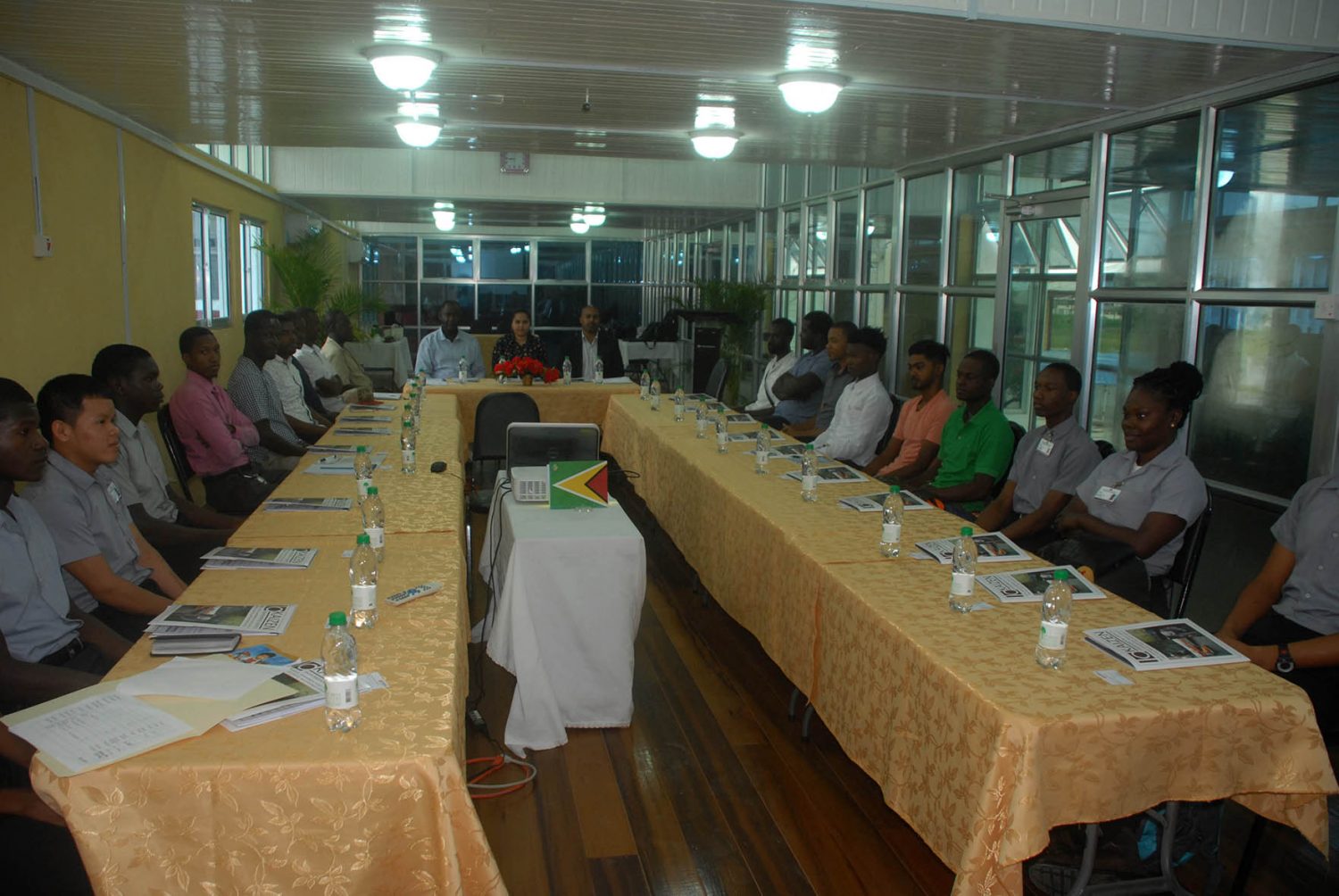Twenty-five students drawn from five of the country’s administrative regions are participating in the first ever programme in oil and gas operations by the Guyana Trades Union Congress-administered Critchlow Labour College, which commenced at the College’s Woolford Avenue Complex yesterday.
General Secretary of the GTUC, Lincoln Lewis who is Chairperson of the College’s Board of Directors told Stabroek Business earlier this week that the significance of the two-day programme reposed in the commitment of the College “to remain in the mainstream of relevant education notwithstanding the challenges. At the moment few things can be more relevant to the national curriculum than oil and gas, Lewis told this newspaper. He said that he believed that government should support the College as it pursues other programmes “down the road.”
The programme, which provides intensive briefings in eleven oil and gas-related areas is being offered with the support of two regional entities, Apollo Global Vision Ltd and Kaizen Environmental Services, both headquartered in Trinidad and Tobago.
Lewis said that the two-day programme was “very much the earliest phase of what the College envisaged as a longer-term initiative to ensure that as the dateline for the exploitation of Guyana’s oil draws closer Guyanese have a sense of all of the important aspects of the industry and its implications for our country.”
According to Lewis the two-day programme can be considered the inaugural initiative being undertaken by the College’s Centre for Oil and Gas Technical/ Vocational Training and that the focus of the Centre, going forward, would be to continue to offer programmes with “relevant exposure to courses that will expand the oil and gas knowledge base of Guyanese.” A prospectus on the course issued by the College says that it is designed to “provide participants with a solid foundation on which to build a basic understanding of typical oilfield terminology, the life cycle of an oil or gas field, the resources, technology and infrastructure associated with the industry and general awareness of the components of both the oil and gas value chains.” The course is designed for both technical and non-technical participants.
The twelve modules in the Course include “Oil and Gas Operations: The Global Context; Safety, Health and the Environment;’ The Oil and Gas Value Chains; Oil and Gas Support Services and Marine Operations & Logistics.
Participants will be awarded a Certificate upon completion of the programme provided they realize a minimum of 80% at the assessment phase and that they attend classes for the full sixteen hours.








